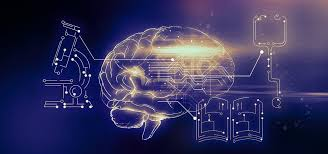Whistleblowers play an essential role in promoting transparency and accountability across a broad range of sectors, including government, business, and non-profit organizations. These brave individuals often find themselves in vulnerable positions, sacrificing their jobs, relationships, and sometimes even their safety to reveal unethical practices. Their bold actions can lead to significant changes that improve public safety and enhance integrity within organizations. The stories of whistleblowers embody our society's shared values around honesty and moral responsibility, highlighting the delicate balance between loyalty to an institution and accountability to the public.

The term "whistleblower" became well-known in the 1970s, yet the act of exposing unethical behavior has a long history. For example, in ancient Rome, there were systems that encouraged citizens to report corrupt officials, serving as an early example of what we now understand as whistleblowing. Over time, the idea of standing up against injustice has evolved, with notable figures throughout history taking on great personal risk for the sake of moral duty. In the modern era, individuals like Edward Snowden have uncovered significant flaws in government oversight.

One of the most impactful whistleblower cases is that of Daniel Ellsberg, who released the Pentagon Papers in 1971. These classified documents exposed the U.S. government's misleading narrative about the Vietnam War, showing that officials had deceived the public regarding the conflict's realities. Despite facing severe consequences, including criminal charges and public backlash, Ellsberg’s revelations sparked a public outcry that fueled the anti-war movement in America. His actions not only highlighted the importance of protecting individual rights, but also set a benchmark for future whistleblowers.
As the late 20th century progressed, lawmakers began to recognize the essential role that whistleblowers play in promoting ethical behavior within institutions. This awareness led to the Whistleblower Protection Act of 1989 in the United States, which aimed to protect federal employees who report misconduct from retaliation. Many states soon followed suit, enacting their own protective laws. In the UK, the Public Interest Disclosure Act of 1998 was introduced to safeguard employees who revealed wrongdoing within their organizations, creating a more secure environment for whistleblowers to express their concerns.

The landscape of whistleblowing changed dramatically in 2013 with Edward Snowden's leak of sensitive documents that exposed the National Security Agency’s mass surveillance programs. His revelations sparked a worldwide conversation about privacy, government oversight, and ethical boundaries in an increasingly digital world. Snowden’s actions reignited discussions about the right to privacy and the moral implications of state surveillance, prompting societies to reevaluate the balance between security and personal freedoms.
While whistleblowers are vital to promoting societal improvement and ethical governance, their actions often spark intense debates over loyalty, ethics, and the consequences of speaking out. Critics argue that whistleblowers can threaten national security and disrupt organizational integrity, asserting that such breaches of security can have far-reaching implications.
However, advocates argue that the advantages of promoting transparency and accountability far outweigh any potential risks related to whistleblowing.

In today’s world, the dynamics of whistleblowing have transformed significantly. The rise of social media and digital technology has created new platforms for the rapid sharing of information, allowing voices that were once muted to be amplified. These advancements help whistleblowers bypass traditional barriers, ensuring that their messages reach wider audiences.
The legacy of whistleblowers remains a powerful reminder of the crucial role individuals play in holding institutions accountable and advocating for ethical behavior. Influential figures like Daniel Ellsberg and Edward Snowden have each brought important truths to light, prompting major regulatory changes and creating a culture of openness and accountability. As our society continues to navigate complex issues related to ethics, loyalty, and transparency, the essential role of whistleblowers stands as a cornerstone in our ongoing pursuit of justice and accountability—whether in government, corporations, or non-profit organizations. Their courage to speak out reflects not only their personal integrity but also serves as a foundation upon which trust and ethical conduct in society are built.









